Chapter 1. Arizona State University:
ASU’s Integrated Field-Based Technology Model: A Legacy of Collaborative Regeneration
|
 |
Kathleen Rutowski is a Lecturer in the College of Education, Arizona State University-Tempe. She teaches and does research in the areas of special education and teacher preparation.
|
 |
Carol Christine is a Clinical Associate Professor in the College of Education, Arizona State University-Tempe. She is Interim Associate Division Director for Initial Teacher Certification and coordinates the elementary education preservice teacher preparation program. |
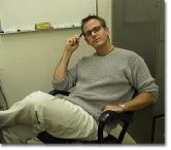 |
Theodore John (TJ) Kopcha holds a Bachelor's degree in Secondary Mathematics Education and a Master's degree in Curriculum and Instruction, both from the University of Connecticut. He is currently completing his dissertation and expects to complete the Ph.D. program in Educational Technology at Arizona State University in May, 2005.
|
Chapter 2. Indiana State University
If at First you Don’t Succeed…Learning from Mistakes and Developing a Better Student Portfolio
|
 |
Christy L. Coleman is an associate professor in the Department of Educational and School Psychology at Indiana State University. She currently teaches graduate-level statistics courses. She earned a doctorate in counseling psychology from the University of California, Los Angeles. Her research interests include stress and coping and the role of values and interests in career decision-making. She serves as the director of evaluation and as a co-principal investigator for ISU’s PT3 grant.
|
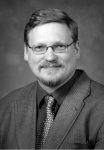 |
Kenneth Janz, M.S. is currently a doctoral candidate at Indiana State University in higher education administration. Mr. Janz served for five years as ISU's College of Education director of Information Technology and is currently the University's director of Instructional and Research Technology Services. His current responsibilities include envisioning, leading, designing, planning, implementing, and directing technologies to support teaching, learning, and research for the entire University. Since August of 1998, Mr. Janz has authored and manages over $6.26 million in grants and contracts in the area of educational technology for the University. He is the project director and co-principal investigator for ISU’s PT3 grant.
|
Chapter 3. Louisiana Tech University
T.H.E.|QUEST: A Statewide Initiative
|
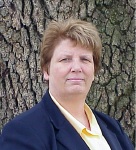 |
Rebecca A. Callaway received an Ed.D. in Curriculum and Instruction from Louisiana Tech University. She received a M.Ed. and a B.S. from Northwestern State University of Louisiana. Rebecca is Coordinator of Instructional Technology at Louisiana Tech University.
|
 |
Kathryn I. Matthew received an Ed.D. in Curriculum and Instruction from the University of Houston. She received a M.Ed. and a B.A. from the University of New Orleans. She has taught in elementary schools and at universities in Texas and Louisiana.
|
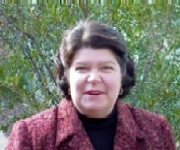 |
Catherine R. Letendre holds a B.A. and a M.A. in Elementary Education from Louisiana Tech University. Catherine was recently selected as District Middle School Teacher of the Year. She is currently working toward National Board of Professional Teaching Standards certification.
|
Chapter 4. St. Edwards University.
The Building Teams and Tools for Teaching (BT3) model: Higher education and K-12 working together to improve teaching and learning |
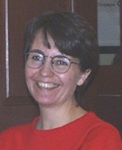 |
Robin Etter Zúñiga is Associate Director of the Flashlight Program of the non-profit Teaching, Learning and Technology Group. She has more than 17 years experience designing and implementing comprehensive program evaluations on the use of technology in instruction for colleges and universities, including St. Edward's University's "Building Teams and Tools for Teaching" PT3 program. She was formerly a research associate with the Western Cooperative for Educational Telecommunications. Ms. Zúñiga holds a Master's degree in public policy analysis from the University of Massachusetts.
|
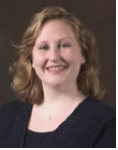 |
Allison McKissack is a former public school teacher frustrated by the lack of basic computer technology available for use in her classroom, McKissack became director of the Building Teams and Tools for Teaching, a program at St. Edward’s University that helps pre-service teachers, inservice teachers, and university faculty develop and implement technology-integrated curricula. McKissack has presented on technology integration at more than 20 conferences. She has also established a program to recycle and distribute the university’s used technology equipment to local nonprofit educational entities.
|
 |
John R. Paige CSC earned the Bachelor’s degree in Physics from the University of Notre Dame, holds Master’s degrees in Mathematics from Wesleyan University, and in Applied Theology from the Graduate Theological Union, Berkeley, and was awarded the Doctor of Philosophy degree from the University of Maryland at College Park. Dr. Paige currently serves in Rome, Italy, as Vicar General of the Congregation of Holy Cross. Formerly Dean of the School of Education at St. Edward’s University, Austin, Texas, Paige served as Project Director of the Building Teams and Tools for Technology (BT3) program at St. Edward’s University.
|
Chapter 5. Stanford University
The Stanford Technology in Teacher Education Project: Supporting Teaching and Learning
|
 |
Rachel A. Lotan is Director of the Stanford Teacher Education Program and associate professor (teaching) at Stanford University School of Education. Her teaching and research focus on aspects of teaching and learning in academically and linguistically diverse classrooms, teacher education, sociology of the classroom, and the social organization of schools.
|
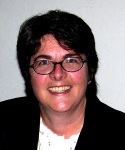 |
Susan E. Schultz's teaching and research interests focus on science education and the education of pre-service as well as professional development for in-service teachers. Her research examines issues of reliability and validity of alternative assessment techniques (i.e., concept mapping and performance assessments), cooperative learning strategies, and equity.
|
Chapter 6. University of Arizona
Using Technology in Meaningful Ways with First Year Teachers:Triumphs and Tribulations Encountered with PT3 Initiatives
|
 |
Molly Romano, PhD. is an Assistant Professor in the Department of Teaching and Teacher Education at the University of Arizona. Her research agenda includes work in teacher reflection, teacher education, and teacher induction practices. She served as Co-PI on a three-year PT3 grant, with a special emphasis on using technology with first year teachers.
|
Chapter 7. University of Missouri-Columbia
Utilizing Case-Based Reasoning Principles in Technology Integration Education
|
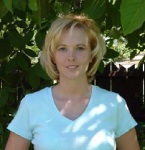 |
Tawnya Means is a doctoral student at the University of Missouri-Columbia in the School of Information Science & Learning Technologies. She has her B.S. in Early Childhood Education and her M.S. in Educational Technology. She has served as project coordinator for the Knowledge Innovation for Technology in Education (KITE) project and the Improving Teacher Readiness through Active Experiences (iTRAX) tracking system project.
|
 |
Feng-Kwei Wang is an assistant professor in the School of Information Science and Learning Technologies (SISLT) at University of Missouri - Columbia. Before moving to University of Missouri in August 1999, he served as a corporate consultant working on systems development projects for several Fortune 500 companies including AT&T, IBM, Delco Electronics, and Eli Lilly. Dr. Wang is interested in the process of designing and developing learning and knowledge management systems and the uses of multimedia and network technologies to enhance human learning and performance. His primary teaching areas in SISLT include information systems design and development, knowledge management, and networks and telecommunications.
|
Chapter 8. University of Nebraska at Omaha
Midwestern Independence and Educational Technology Use: Evaluation Strategies of the Nebraska Catalyst Project
|
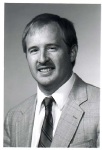 |
Neal Grandgenett is currently the Peter Kiewit Distinguished Professor within the Department of Teacher Education at the University of Nebraska at Omaha. Dr. Grandgenett is active in the examination of technology-based learning environments and has published over 70 articles and papers related to the topic. He is well experienced in project evaluation and has directed more than 20 different large-scale evaluations in projects funded by NASA, NSF, and the U.S. Department of Education. His evaluation and curriculum development work has resulted in several awards including the NASA Mission Home Award and the Nebraska Technology Professor of the Year Award.
|
 |
Jean Jones is past Director of a PT3 Statewide Federal Technology Grant. Her work has been directed toward grant management, facilitating community initiatives, and teaching a variety of graduate courses at Concordia University and the University of Nebraska. Dr. Jones has published several articles related to abuse and resiliency, and is currently editing a book with three colleagues to be published in 2005 by Haworth Press. Her most recent work is at Concordia University in Seward, NE, where she is serving as the interim Integrated Marketing director.
|
Chapter 9. University of Wisconsin - Milwaukee.
Reform in Teacher Education as a Scaffold for Technology Integration
|
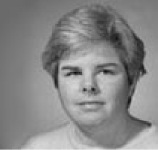 |
Amy Staples, an assistant professor of special education at the University of Northern Iowa, was a visiting assistant professor at UW-Milwaukee during the study detailed herein. She received her Ph.D. in educational psychology at the University of North Carolina at Chapel Hill. Her research focuses on the impact of technology on the inclusion of students with disabilities.
|
 |
Marleen Pugach, Professor and Director of UW-Milwaukee’s Collaborative Teacher Education Program for Urban Communities, received her Ph.D. from the University of Illinois at Urbana-Champaign. Her research and scholarship focus on preparing teachers for working with diverse populations in urban schools.
|
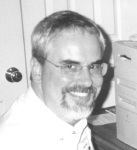 |
DJ Himes, Instructional Technology Specialist at UW-Milwaukee, received his Master’s degree from North Carolina State University. He teaches courses in instructional technology.
|
Chapter 10. Wayne State University
A Laptop Initiative in a Teacher Preparation Program: Unexpected Challenges and Unanticipated Outcomes
|
 |
Mary L. Waker, Ed.D., is the Director of the Education Technology Center in the College of Education at Wayne State University. She is responsible for developing and implementing technology initiatives in the college. She is the current president of the Consortium for Outstanding Achievement in Teaching with Technology (COATT, www.coatt.org) and occasionally teaches graduate courses in Instructional Technology. She is the principle investigator on a 2001 Preparing Tomorrow's Teachers to Use Technology grant.
|
 |
Sally K. Roberts, Ed.D., is an Assistant Professor of Mathematics Education in the College of Education at Wayne State University. She teaches mathematics content and methods courses for teacher candidates and graduate students. She is a long time advocate for instructional technologies and is currently chairing the Technology Committee for the College.
|
Chapter 11. Western Michigan University
Pursuing DEEP Learning: Digital Engagement for English Preservice Students
|
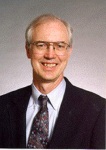 |
Robert Leneway was recently name the 2005 Educator of the Year by Michigan Association of Computer Users in Learning (MACUL). He is a former PT3 Implementation Grant Director with Western Michigan University. He is currently the Program Coordinator and an Assistant Professor for the Educational Technology program at WMU. He also been very active with the ThinkQuest for Tomorrow’s Teacher PT3 Catalyst grant and is currently involved as WMU representative to the Michigan COATT PT3 Catalyst grant. He also served for 25 years in the Michigan Department of Education in various educational development, administration and consulting roles.
|
 |
Allen Webb is a Full Professor of English, English Education, and Postcolonial Studies at Western Michigan University, he is author of _Literature and Lives: A Response-Based, Cultural Studies Approach to Teaching Literature_, _Making Subjects: Literature and the Emergence of National Identity_, and _Teaching and Testimony_, as well as numerous articles and reviews. Professor Webb is a member of the Executive Committee of the Conference on English Education and of the Michigan Council of the Teachers of English. His PhD in Comparative Literature is from the University of Oregon, a state where he taught high school for six years. His professional website is: www.allenwebb.net.
|
|
|



